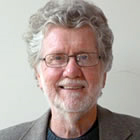
Robert Olson ( December 14,1940 - October 13, 2023 )
Robert Olson was Professor of Middle East history and politics at the University of Kentucky (Emeritus). He was the author of more that ten books of various aspects of Middle East history and politics. His major books are: The Siege of Mosul and Ottoman- Persian Relations: 1718-1743; The Emergence of Kurdish Nationalism and the Sheikh Said Rebellion: 1880-1925; Turkey's Relations with Iran, 1979-2004;The Kurdish Question and Turkish-Iranian Relations:From World I to 2000; Blood, Beliefs and Ballots: The Management of Kurdish Nationalism in Turkey, 2007-2000; The Kurdish Nationalist Movements in Turkey: 1980-2011; The Goat and the Butcher: Nationalism and State Formation in Kurdistan-Iraq since the Iraqi War War. He was also the author of 75 referred research articles and 60 edited research articles. He was distinguished Professor of the University of Kentucky in 2000.
Introduction.
Chapter 1: Oppression, Resistance, War, Education in the Mother Tongue.
Chapter 2: Education in the Mother Tongue.
Chapter 3: Relations with the Kurdistan Regional Government.
Conclusion.
Index.